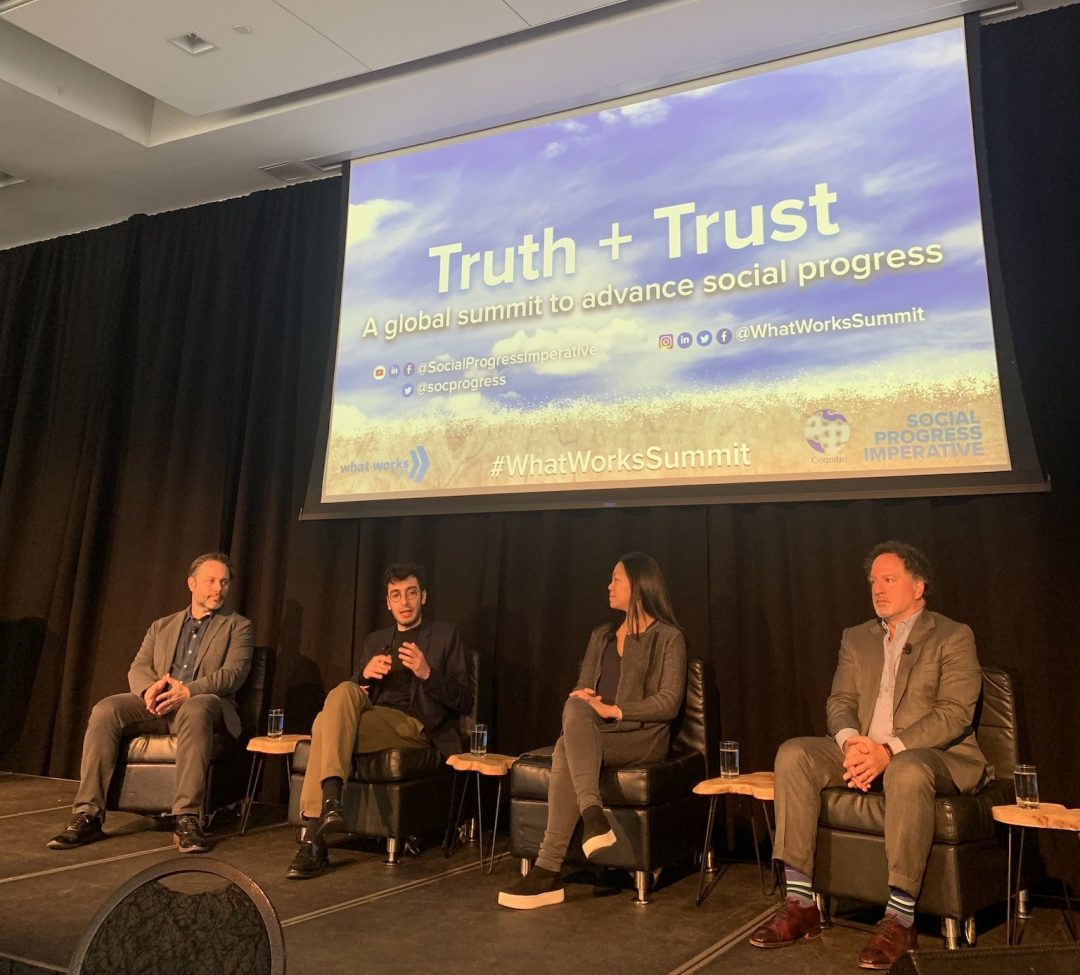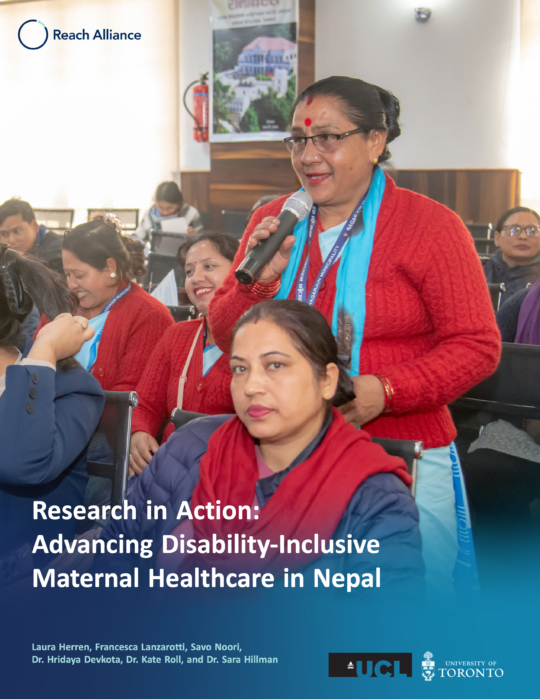
Author: Kourosh Houshmand
Earlier this month, I spoke at the What Works Summit organized by the Social Progress Imperative on the topic of misinformation and social progress. I left the summit ever more contemplative about the fragility of trust and its role in creating common paradigms of truth.
A common paradigm of truth means that while it is healthy to believe in different things, a functioning society needs a center of gravity underlying the information it shares. It needs a common paradigm that is trusted so that the fundamental intent of information, with checks and balances, can be relied upon.
Social progress, trust and truth are highly interdependent in my view. A prerequisite for social progress is this idea of a common paradigm of truth and a prerequisite for common truth is social trust. And social trust can appear in many forms—in our administrative institutions, in our media, or in government and often these are not mutually exclusive groups.
I have spent the better part of my academic and professional career either in the media industry or as a data scientist and I’ve learned the extent to which perceptions of truth can be varied. We should be careful not to grow accustomed to the idea that having different paradigms of truth is simply part of our new social fabric. Just as dangerous as misinformation itself is growing callous towards accepting it.
In journalism, your job is to find truth through stories and as a data scientist, through patterns. The goal in both is to find a shared truth, with parameters around what might not be fact but a strong belief, to help understand the world and those around us a little better. The problem we face in today’s information landscape is that institutions have limited structural incentives to be rigorous about truth and as such we rely almost entirely on altruism.
Given the precarious information landscape and a fragile ecosystem of trust the question is: How can we build trust in our institutions of information? And while difficult, perhaps we would be well served to look at moments in history where we’ve had success building trust. One such case is the birth registration rates in the hardest to reach communities of South Africa. From 1992 to 2012 the birth registration rates in South Africa grew from 25% to 95%—an incredible feat for a society that had many reasons not to trust their institutions, historically.
As a Reach Alliance researcher on this study in South Africa, I learned how critical and fragile institutional trust can be. In other words, it can be easy to lose and hard to regain. We also learned however, that even in the most difficult contexts it is possible rebuild lost trust. Through partnerships, local campaigns, and inclusive citizenship, they were able to drastically increase their registered population.
While the success story in South Africa is not a complete parallel to the current information landscape, it shows a case of institutional trust-building. It shows in some capacity how we can build trust, and from that, potentially create common paradigms of truth.
The views and opinions expressed in this article are those of the independent authors and do not represent those of any organization, company or entity.
